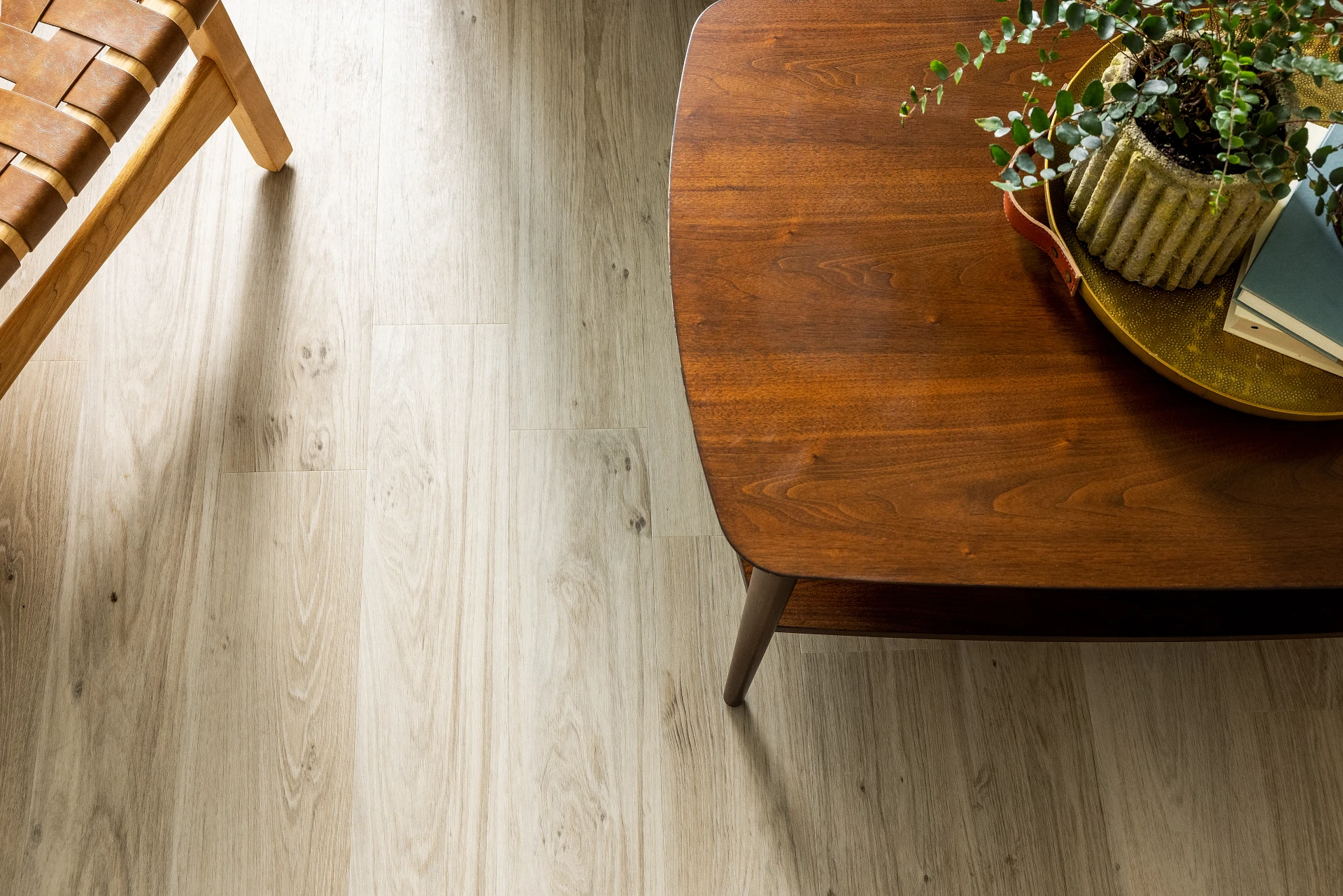Top Alternatives To Hardwood Flooring

True hardwood flooring, typically made from tree species such as oak and maple, was the industry standard in older homes. There weren’t many hard flooring options for homes built prior to the 1970’s, especially for living areas (not bathrooms or kitchens), so wood floors are commonly found throughout homes from bygone eras. That isn’t the case today. Hardwood flooring in newer homes is considered an upgrade, or used only in a small area to make a statement. In fact, unless you currently have hardwood floors under another type of flooring like sheet vinyl, tile or carpet, you may find the cost discouraged from installing them by their cost. If hardwood floors are out of reach, what are the other options?
Engineered Hardwood: A Modern Alternative
Engineered Hardwood floors are an excellent alternative to traditional hardwood floors. Constructed from a thin layer of authentic wood adhered to a core made from plywood or fiberboard, they offer many of the same benefits of traditional flooring. They are durable, they can be refinished if they become worn, and they feel like hardwood underfoot. Engineered floors are also much more water tolerant and so can be installed in areas that may have to endure some moisture. They are comparatively inexpensive, despite that the raw material cost is similar. Unfinished hardwood flooring and engineered floors both average about $2.50-$3 per square foot. Where is the savings? It is in the finishing. Unless you are a carpenter, it would probably be a mistake to attempt to install your own hardwood floors (or anyone else’s for that matter). The process requires both glue and nails, and a level of expertise that most of us lack.
In addition, notice that the pricing above is for unfinished materials. You will want your floors finished with a stain or varnish and polyurethane of your choosing, along with any necessary preparation. This process requires an additional level of knowledge and experience, the kind a carpenter or other flooring professional would have. The bottom line is that you should hire someone to install your flooring, which can cost an additional $10/sq ft or more, because of the skill, process and time required.
Engineered floors, on the other hand, are designed to be much more user friendly. Similar to luxury vinyl and laminate flooring, the most popular engineered floors “float,” and can be self-installed with some basic tools over a sturdy subfloor. They fit together with tongue and groove technology to form a continuous floor, rather than being nailed or glued in place, although you can use glue if you’d like.

Luxury Vinyl and Laminate: Versatile Alternatives
Speaking of vinyl and laminate, both are valid alternatives and worthy of consideration. Luxury Vinyl is available in plank (LVP) and tile (LVT) formats. Made entirely of inorganic materials, luxury vinyl has an image layer of either wood or tile, depending on what you choose. It is durable, waterproof and suitable to install almost anywhere. You can use LVT or LVP throughout your home, including places like kitchens and bathrooms.
Laminate flooring, which is available in plank format, is similar to luxury vinyl but it has a fiberboard core, which is organic. Laminate can handle some moisture but can swell and warp if it is exposed to extended wetness. For this reason, laminate is not the best choice for areas that will definitely get wet, such as a bathroom, but it is a great alternative to use in living areas. Both luxury vinyl and laminate floors can be self-installed with basic tools and some easy preparation, making them ideal for handy homeowners who would like to improve their floors and stay on budget.
Even if hardwood floors are outside your budget, there are many worthy contenders. Once you know what you can spend, get in touch with the designers at Christian Brothers Flooring And Interiors. We can help you run through the options, review your plan, and set you up with an installer, who can help make your flooring dreams a reality.


